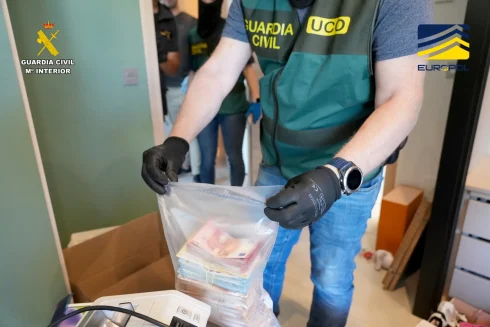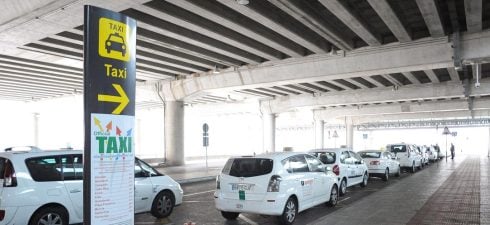THE Guardia Civil have led a global operation to take down the infamous Balkan clan, thought to be responsible for importing half of all the cocaine entering Europe.
A four-year operation resulted in the complete dismantling of the mega cartel which was made up of a conglomerate of organisations trafficking cocaine sourced from Brazil.
The cocaine was transported via the so-called West African route, warehoused in Sierra Leone, and then moved from the Canary Islands to handling centres in Belgium, Croatia, Germany, Italy and Spain.
From there the cocaine would be further distributed across Europe.

The most recent arrests yesterday saw four people detained in Spain and seven property searches.
Previous raids in February saw the arrest of an Argentine kingpin along with the seizures of a well-known leisure centre in Marbella, various bars and restaurants, and the notorious Molly West nightclub and Neptune shopping centre in Granada.
Overall, the operation has seen 40 arrests, with three ‘high value targets’, and around 8 tonnes of cocaine seized in the cocaine gateways of Belgium, Netherlands and Spain.
Various military-grade weapons were also seized, as well as €12.5 million in cash, $3 million in US dollars in Brazil, and assets worth €50 million in Serbia.
The culmination of the four-year-long Operation Adriatic was announced by officials from the Central Operative Unit (UCO) of the Guardia Civil, alongside representatives from Serbia, Italy, Croatia, Dubai, and Germany.

A number of worldwide actions had already dealt significant blows to the criminal network.
On May 11 2023, Serbian and Dutch authorities jointly targeted the cartel’s leadership and distribution infrastructure.
Throughout the operation, authorities arrested 13 suspects and seized large amounts of weapons and assets estimated at about €50 million.
During another operation in October 2023, Croatian, German, Spanish and Turkish law enforcement authorities carried out a joint action against this cartel.
The results included 21 arrests in Croatia and Germany and large seizures of drugs, firearms and liquidities.
A month later, Turkish authorities arrested one of the network’s main leaders and his close associate, both Croatian nationals, in Istanbul.
Brazilian authorities targeted the Brazilian criminal organisation that had been transporting cocaine inland from source countries to seaports in Brazil and other logistical hubs.

They would then deliver cocaine shipments to West Africa, for further shipment operations coordinated by European criminal networks.
The Brazilian network provided different criminal networks with a number of criminal services, including logistics, and facilitated money laundering activities.
In March 2024, the Brazilian authorities carried out the last phase of an investigation into the laundering of the drug trafficking profits, which revealed that almost 500 bank accounts had handled over two billion €371 million in years prior.
The takedown of encrypted communication tools used by criminals played a key role in helping international law enforcement understand how criminal networks function.
One trend that emerged was the important role played by criminal networks, largely composed of nationals from countries in the Balkan region, in the global cocaine trade.
Europol created an Operational Taskforce in response to this threat.

Led by members with experience working with the region, the Operational Taskforce brings together Balkan, EU and global countries, to effectively target these criminal networks.
During the three years of investigative activities, Europol coordinated the information exchange between national authorities, bringing them together to efficiently target the entire drug trafficking network.
In addition, Europol provided continuous intelligence development and analysis to support the field investigators.
This intelligence allowed law enforcement to uncover a full picture of the covert network operating across various countries and continents.
Intelligence provided by Europol contributed to some of the seizures made during the course of these investigations.
During the action days, Europol deployed experts to Brazil and Spain to provide analytical and technical support to officers in the field.









